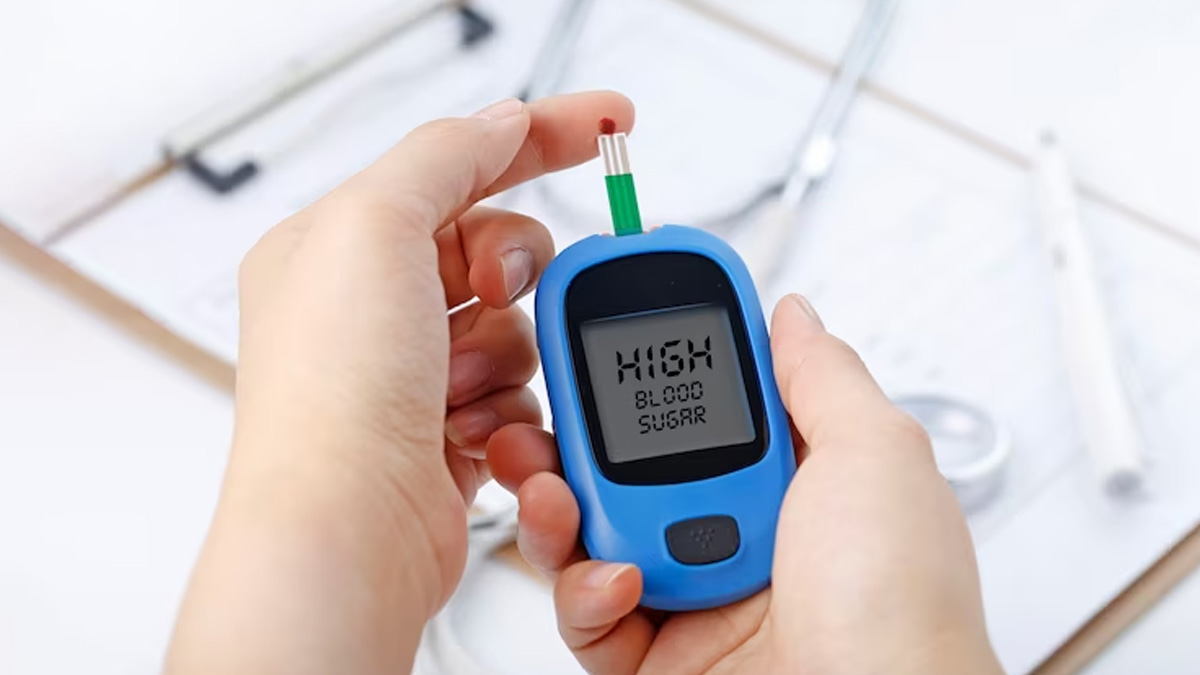
Mangoes, with their juicy sweetness and tropical flavour, are a beloved fruit around the world. However, if you have diabetes, you may wonder whether you can still enjoy this delicious fruit without causing harm to your health. The answer is yes, but with some important considerations.
Table of Content:-
Can You Eat Mangoes If You Are Diabetic
We spoke to our expert Mayur Rastogi, Assistant Professor, Nutrition and Dietetics Department - Sharda University to shed some light on the same. Here's what you need to know about including mangoes in your diet while managing diabetes.
1. Mangoes in Moderation
Due to their naturally high sugar content, mangoes should be eaten in moderation by diabetics. A large mango weighing about 200 grams can contain up to 20% of your daily sugar intake, which can lead to a spike in blood sugar levels. Instead, opt for smaller portions to enjoy the flavour without causing significant impacts on your blood sugar.

2. Eat Mangoes with Balanced Meals
Pairing mangoes with foods that contain protein and fibre can help mitigate the impact on blood sugar levels. Consuming 50-70 grams of mangoes along with nuts or yoghurt, for example, can slow down the absorption of carbohydrates and prevent sudden spikes in blood glucose. This balanced approach also helps you feel fuller for longer and reduces the likelihood of overeating mangoes.
Also Read: Icy Risks: 8 Reasons Why You Should Just Not Be Drinking Ice Cold Water in Summer
3. Watch Your Carbohydrate Intake
For diabetics, monitoring total carbohydrate intake is crucial. Mangoes contain carbohydrates, so it's essential to factor them into your daily carbohydrate count. Stick to your prescribed carbohydrate limits and consider how mangoes fit into your overall meal plan. If you plan to indulge in mangoes, adjust your carbohydrate intake from other sources accordingly to maintain balance.

4. Monitor Blood Sugar Levels
Individual responses to mangoes can vary, so it's essential to monitor your blood sugar levels after consuming them. If you notice significant spikes in blood sugar, it may indicate that you need to adjust your portion sizes or how you pair mangoes with other foods. Regular monitoring helps you understand how mangoes affect your body and allows you to make informed decisions about including them in your diet.
Also Read: Navigating Breakfast with Diabetes: Expert Shares Foods to Avoid and Healthy Alternatives
5. Enjoy Different Mango Variants
Aside from eating ripe mangoes, you can also incorporate raw mangoes into your diet. Raw mangoes are less sweet and contain more vitamin C and protein compared to ripe mangoes. They are used in various dishes such as salads, chutneys, and pickles. Including raw mangoes in your meals provides you with the health benefits of mangoes without causing significant spikes in blood sugar levels.
A Final Word
Mangoes can be a part of a diabetic-friendly diet when consumed in moderation and as part of a balanced meal plan. Enjoying smaller portions of mangoes along with protein and fibre-rich foods can help stabilise blood sugar levels and prevent sudden spikes. Remember to monitor your blood sugar levels regularly and adjust your intake based on your body's response. With careful planning and moderation, you can savour the deliciousness of mangoes without compromising your health.
Also watch this video
How we keep this article up to date:
We work with experts and keep a close eye on the latest in health and wellness. Whenever there is a new research or helpful information, we update our articles with accurate and useful advice.
Current Version